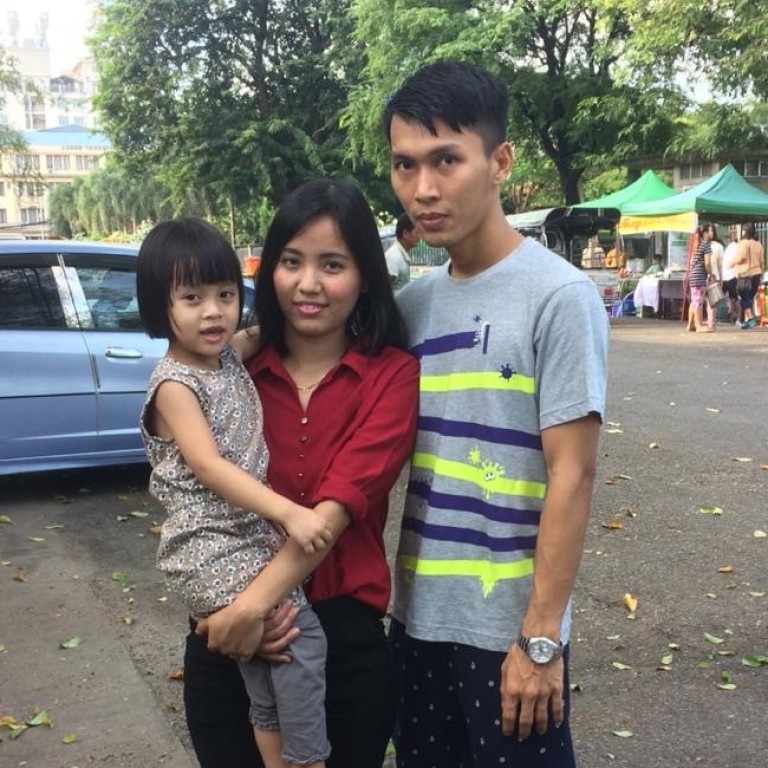
For Myanmar’s young women, tourism provides a way out of poverty
- Working women are frowned upon in Myanmar society but for housekeeping supervisor Ae Ae Phyo Aung who earns up to US$400 a month, tourism is a way to a more prosperous future
- The 39-year-old earns more than her husband and her salary goes towards savings and luxury items
“The plan was always to keep moving up,” says 39-year-old Ae Ae Phyo Aung, her English clear and precise. “That’s why I went to work in Doha and Dubai.”
After two three-year stints in the Middle East, Ma Ae (“Ma” means “Ms” in Burmese) now works as a housekeeping supervisor in a five-star hotel in Yangon. In 2000 when she was 20 years old, she started working in marketing for the Yellow Pages. She had just finished high school and needed to help her father support her two younger brothers. Two low-wage jobs later, she joined the hospitality industry, slogging away at a budget hotel while pursuing distance education.
Then in 2004 she moved to the Sedona Hotel, her first five-star establishment. She knew at once this was what she wanted to do, recalling: “The hotel industry always provides a high standard of service. And the people there are often educated well.”
The billion-dollar question: is the gig economy sustainable?
After the Sedona, she headed overseas. Her first stop was Qatar in 2006, returning to Yangon when her father passed away in 2009. She moved to Dubai in 2011 before coming back for good five years ago. She regarded each top-tier hotel as a stepping stone, enhancing her pay, experience and prospects until she secured her current job.
In a country that only recently raised the minimum wage from 3,600 kyat to 4,800 kyat an hour (US$2.30 to US$3.10), there is a stark divide between the luxuriousness of her working environment and the austerity of everyday life in Yangon. But for Ma Ae, hotels and the lifeblood of tourism have provided her the means to climb out of poverty towards a more prosperous future.

Even though working women are frowned upon in Myanmar’s society, she earns the equivalent of US$300-US$400 per month compared to the US$100-US$200 more common in Yangon.
Moreover, in a city where most married women do not work, she makes more than her husband, who is a laundry supervisor. His income of about US$250 pays for the necessities while her salary is for their savings and luxury items.
According to 2017 statistics from the International Labour Organisation (ILO), only 50.5 per cent of women in Myanmar are part of the work force, well behind 85.5 per cent of men. This is low in comparison to other Southeast Asian countries, such as Indonesia (52.5 per cent of women), Malaysia (54.8 per cent), Thailand (59.8 per cent), Singapore (60.7 per cent) and Vietnam (72.7 per cent).
For me, I hope that one day I can be like those at the top
In another year or so, Ma Ae hopes to afford the down payment for a flat in North Dagon, a more upscale neighbourhood 20km away, where a flat of 600 square feet starts at US$10,000.
Mae Ae starts at 8.30am. She manages a team of 15 people and a typical workday involves attending meetings with managers, inspecting the quality of the rooms and signing reports.
She is committed to ongoing education for her staff and pushes them to take English classes three times a week.
“It is important because our customers are almost all European,” she says.
She enjoys her responsibility but being a working mother is not easy. Every morning, she buys her daughter, Thada, breakfast and then drops the child off at her mother’s, before heading to work. The only other time spent with the girl are a few precious hours at night.
Ma Ae previously had no concerns about travelling abroad for more opportunities, she now chooses to remain in Yangon due to the education and health care for her daughter.
“I want to have a house or a flat, and I want my baby to go to private school,” she says. “For me, I hope that one day I can be like those at the top.”

